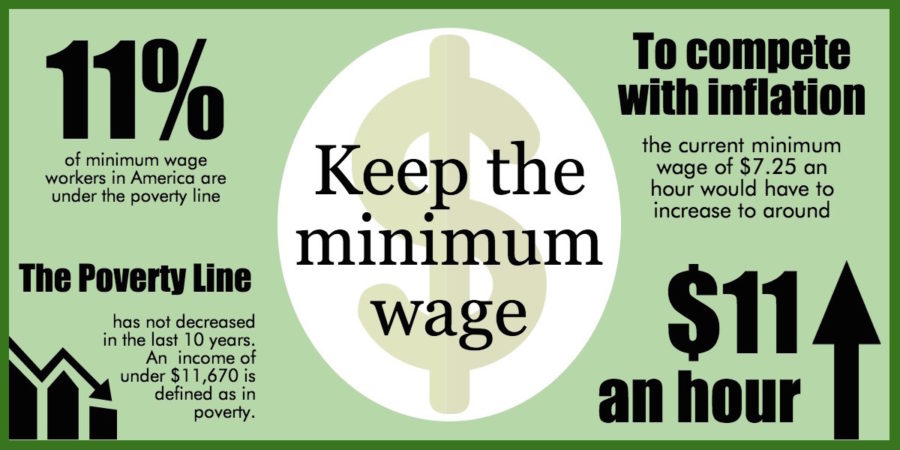McGarvey: Dont raise minimum wage
An increase in the minimum wage would lead to the same result as the last forced wage increase, higher inflation. If the minimum wage continued to increase at the same amount as inflation, a worker would make close to $11 an hour.
November 20, 2014
Raising the national minimum wage would hurt our economy instead of helping to stabilize it.
Proponents of raising the wage rate say it would help poverty-stricken people by providing higher paying jobs for them. Their argument is flawed in every aspect.
By increasing the minimum wage, less jobs become available, there will be an inflation in prices to consumers and unskilled, or low-skilled, laborers will lose their jobs.
If we look at the the entry level positions that make minimum wage in the workplace, nearly all of them have an opportunity to rise up to a new position and make more money. The starting pay of $7.25 is meant for the people who do not have as much experience as other workers in their specific industry. By raising the wage rate, companies may be forced to cut back on employment and release the workers with the least amount of experience. If that were to happen, we would see an immense rise in the unemployment rate. This has happened during every minimum wage increase dating back to to 1938. Joseph Sabia and Richard Burkhauser estimated that nearly one million jobs will be lost if the minimum wage is raised to $9.50.
Historically, inflation rises with wage increases. Consumers are forced to pay more for their goods because labor costs have increased. The only way for inflation to not occur is if jobs are cut instead, which would result in a bigger workload for those keeping their jobs. Basic economics says that if labor rates increase, the prices of the goods and services increase as well.
Entry level employees with little to no job experience will be forced out of their jobs because employers will be forced to give their jobs to more experienced groups of people. By increasing the federal wage rate, we’re nearly eliminating an opportunity for teenagers and young adults to earn workplace experience.
Instead of helping decrease poverty levels, the last increase in minimum wage did not affect the poverty line one bit. The increase showed that poverty-stricken people aren’t even the people who are affected by the raise. The raise affects the household that using minimum wage jobs as secondary incomes, or simple part-time positions. Historically, raising the minimum wage hasn’t improved poverty at all, we shouldn’t expect it to be different this time.
With all of that being said, I don’t understand why raising the minimum wage would be good for anyone in the long run. If we raise the wage today, we’ll have to keep increasing it every year to keep up with the inflation rates. As a college student, I would love to make more money, but I would rather see a better, financially-stable America before lining my own pockets with raises given to me by the government.







